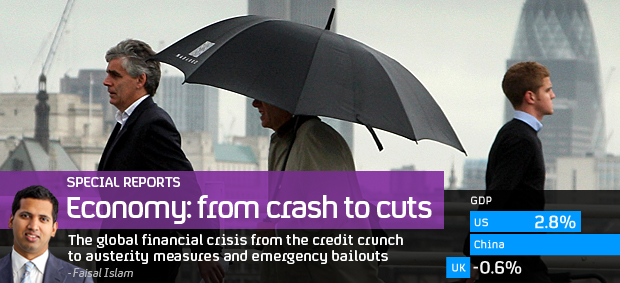Cyprus deposit tax: banks to stay shut until Thursday
Cypriot politicians extend a national bank holiday by two days as they prepare to vote on a controversial tax on people’s bank deposits – a move it is hoped will secure much needed bailout funds.
An emergency meeting on the tax was intended to be held on Sunday, but was postponed following fierce public outcry from Cypriots. It was meant to take place on Monday, a bank holiday in Cyprus, but was than postponed until Tuesday.
Under the measure, which Cyprus’ President Nicos Anastasiades (pictured, below, with German Chancellor Angela Merkel) says the country has “no choice” about, both Cypriot and foreign savers will incur a levy on their bank-held deposits.
Account holders with deposits of up to €100,000 would pay a one-off charge of 6.75 per cent, and those with more than €100,000 would pay 9.9 per cent.
It is the least painful under the circumstances because above all it leaves the management of our economy in our own hands – Cypriot President Nicos Anastasiades
After late night talks on Friday, a deal was agreed to give Cyprus the bailout, making it the fifth country to need EU help in the current European economic crisis.
On Saturday, Cypriots rushed to banks in an effort to withdraw their funds. The banks remained closed on Monday, due to the holiday, but the postponement of the vote until Tuesday means the bank holiday will be extended.
A government source said on Monday that Tuesday and Wednesday would also be bank holidays.
In the meantime, politicians are working to soften the blow to Cypriot people – attempting to weight the harshest impact of the measures towards those with deposits of more than €100,000.
A Cypriot source told Reuters on Monday that an exemption to the tax may be applied to those with under €20,000 deposited in Cypriot banks.
‘Dangerous’
The plan has been heavily criticised by Russian President Vladimir Putin, who described it as “unfair” and “dangerous”.
Russian citizens account for the majority of the billions of Euros held by foreigners in Cypriot banks, and the island is also a favoured offshore haven for Russian big business.

“While assessing the proposed additional levy on bank accounts in Cyprus, Putin said that such a decision, should it be made, would be unfair, unprofessional and dangerous,” Kremlin spokesman Dmitry Peskov told journalists.
Russia is also currently deciding whether of not to extend a 2.5bn euro sovereign loan to Cyprus for a further five years, until 2021. Cyprus’ Finance Minister Michael Sarris had planned to travel to Moscow on Monday for meetings to try to pin down new loan terms, but is now expected to make the trip on Wednesday.
‘Least painful’
Cyprus’ banks have suffered after losing around 4.5bn euros on Greek government bonds, after Greece’s debt was written down last year.
Cypriot MPs have already approved a number of actions under a preliminary bailout deal, including cuts to government workers’ salaries and pensions and increased taxes.
Mr Anastasiades, who assumed the Cypriot presidency on 1 March, said the solution to the country’s debt problem was “not the one we wanted”.
He said: “It is the least painful under the circumstances because above all it leaves the management of our economy in our own hands.”
He said the tax would only be as much as the interest collected on deposits over two years and stressed that it would only happen once because it would ensure the bailout would not push the country’s debt to unsustainable levels.
Savers would be compensated with bank shares and all depositors who opt to keep their money in Cypriot banks for at least two years would receive government bonds with a value equal to their losses, he added.
British Chancellor George Osborne has said deposits held by British military personnel on the island will be protected from the levy.
-
Latest news
-
Trump hush money trial: Defence gives closing arguments4m

-
‘Children should be educated with survival skills’, says Leeds Young Conservatives chairman3m

-
The Estonian teenagers training for conflict and crisis5m

-
‘There’s an overwhelming sense of fear and panic,’ in Rafah says Red Cross3m

-
Israel Hamas war: Tanks move into central Rafah as thousands flee3m

-





